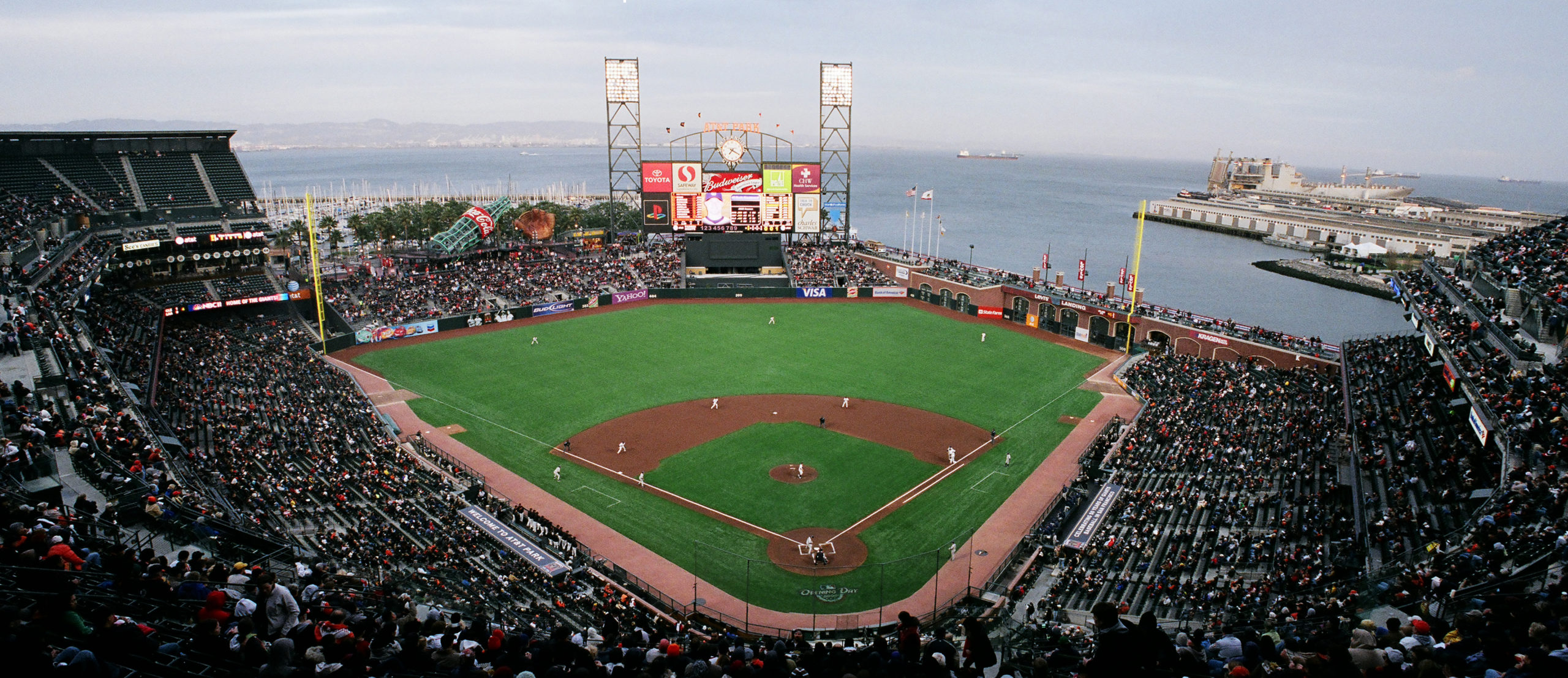
The San Francisco Giants’ home stadium now has its fourth name. The team completed an agreement with Oracle for naming rights that will run through 2038, with the stadium now called Oracle Park. The deal was announced Jan. 10.
A Denver team of Hogan Lovells attorneys advised Oracle in the transaction. The firm, the Giants and Oracle have kept most of the deal’s specifics confidential. Documents from the U.S. Patent and Trademark Office don’t provide much insight about the details but show a filing to trademark the Oracle Park name dated Jan. 9. The San Francisco Chronicle and Bloomberg previously reported the naming rights deal is worth upward of $200 million.
But Hogan Lovells partners Matthew Eisler and Craig Umbaugh shared the insights they’ve gained from experience about the delicate “dance” that has to take place to balance the different interests involved behind the scenes in a naming rights deal.
“It’s more like a partnership than it is just buying inventory in the stadium,” Eisler said. He specializes in corporate transactions, and he said it’s common for parties on each side to think they’ll always have a good relationship with one other and the deal will never go south. “But it’s highly contentious, because the whole nature of a 20-year deal is trying to predict the future.”
Partners David London and Niki Tuttle along with associates Ryan Adrian, Katy Raffensperger and Bill Nunn also were part of the team representing Oracle.
Sponsorship deals get complex because of all the parties who have their own brands and intellectual property to protect: the league, the team and the sponsoring company. And the league has a wide berth to approve or veto terms.
“You’re not just negotiating with your partner,” Eisler said. “And so just because you have a win with your partner doesn’t mean that you can actually exercise that right. Some of the things that we asked for on the sponsor side, [we] have to have that dialogue with the league to understand if it’s something that they’ll let you do.”
As an example of the reach of a sports league’s power over an agreement, Eisler used the hypothetical example of a corporation that acquires naming rights to a stadium and then wants to include that it held those rights in a catalog of the company’s history. The company may have to get approval from the league to do that, Eisler said.
Sponsors also come to the negotiating table with different priorities depending on the type of company. A sponsor like McDonald’s probably hopes to sell more of their food. But a business with a less concrete product or service, such as an energy company, may see more value in the goodwill that comes with associating with a beloved local sports team rather than actually selling more energy as a result of naming rights.
Oracle has naming rights for 20 years, which means it would outlast any of the stadium’s previous partners. The stadium opened in 2000 as Pacific Bell Park and has undergone two other name changes before this latest one as the companies with naming rights underwent mergers and acquisitions.
But other team venues have iconic names, which would raise the stakes of ever trying to change them. It’s hard to imagine stadiums like the Boston Red Sox’s Fenway Park or the Green Bay Packers’ Lambeau Field ever going by different names.
“I think a sponsor would want to be very careful looking at that,” Umbaugh said. The Denver area has its own example in the Fiddler’s Green Amphitheatre, which was for separate periods known as Coors Amphitheatre and Comfort Dental Amphitheatre. But Fiddler’s Green stayed in the lexicon of locals, and the venue’s name was most recently changed back in 2013.
“If no one’s calling it Coors Amphitheatre … then I think you’re wondering what you’re really getting there for your money,” Umbaugh said. Eisler added companies can try to combat that type of brand dilution with strategies like having parts of the naming agreements that require partners of the sponsorship to use the new name.
Other practical factors also affect the deft balancing of interests in a name change. New York City’s Barclays Center, home to the Brooklyn Nets and New York Rangers, has a corresponding subway station called Atlantic Avenue-Barclays Center. Changing the venue name would require also changing the station name and all the Metropolitan Transit Authority’s subway maps.
“The arena owner is really compelled to push back against any kind of name change,” Eisler said. A naming rights deal can also turn unfavorable if the sponsoring company dissolves or one side gets caught in a scandal, as in the case of Enron, which for a time had its name on the Houston Astros’ home stadium.
But as Eisler said, the success of a long-term deal like Oracle’s takes a balance of trust and risk management“I think of it as a joint venture,” he said. “Over the long term, you have to have trust in your partner.”
— Julia Cardi

